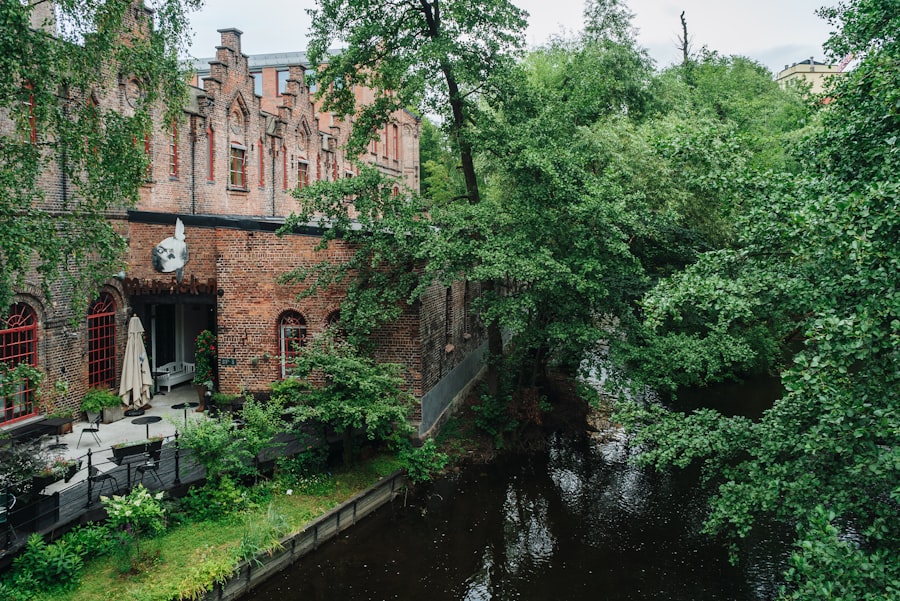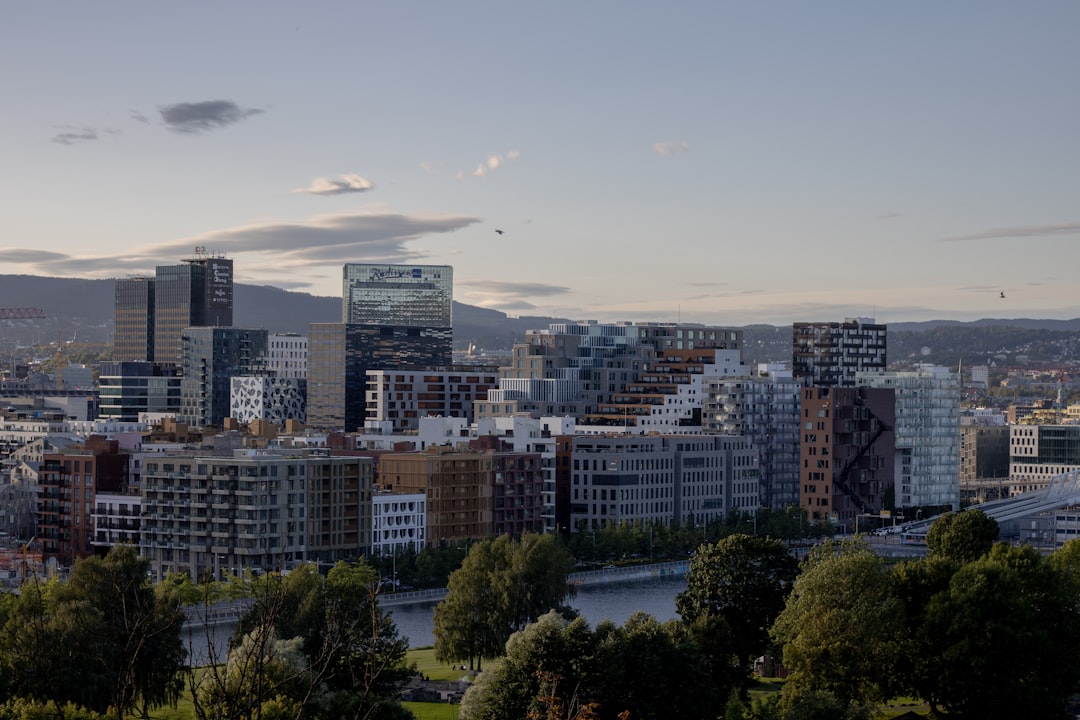The Helsestasjon, or health station, is a cornerstone of the Norwegian healthcare system, particularly for families with children. It serves as a community-based health service that provides essential support and guidance to parents and their children from birth through adolescence. The Helsestasjon is not merely a medical facility; it embodies a holistic approach to health, focusing on physical, mental, and social well-being.
This unique institution plays a vital role in ensuring that families receive the necessary resources and information to thrive in their early years. In Norway, the Helsestasjon is accessible to all families, regardless of their background or socio-economic status. This inclusivity is a testament to Norway’s commitment to public health and the well-being of its citizens.
The services offered at the Helsestasjon are designed to empower parents, promote healthy development in children, and foster a supportive community environment. As we delve deeper into the history, services, and significance of the Helsestasjon, it becomes evident that this institution is integral to the fabric of Norwegian family life. Schedule a one-on-one consultation with our relocation specialists to simplify your move to Norway. https://norwayrelocation.no/one-hour-strategy-session/
Summary
- Helsestasjon is a Norwegian concept of a health station that provides healthcare and support for families, particularly focusing on maternal and child health.
- The Helsestasjon has a long history of development, starting in the early 1900s and evolving to meet the changing needs of Norwegian families.
- Services provided by the Helsestasjon include regular check-ups for infants and children, vaccinations, parental support, and mental health support for families.
- The Helsestasjon plays a crucial role in Norwegian family life by providing preventive healthcare, supporting child development, and offering essential services for maternal and infant health.
- Despite its importance, the Helsestasjon faces challenges and criticisms, such as limited resources and difficulties in reaching vulnerable families. The future of the Helsestasjon in Norwegian family life will depend on addressing these challenges and continuing to adapt to the needs of modern families.
History and Development of the Helsestasjon
The concept of the Helsestasjon can be traced back to the early 20th century when Norway began to recognise the importance of maternal and child health. The first health stations were established in urban areas to address high infant mortality rates and improve overall public health. Over the decades, the Helsestasjon evolved in response to changing societal needs and advancements in medical knowledge.
By the 1970s, the service had expanded significantly, incorporating a broader range of health services and becoming more integrated into the community. As Norway progressed through the latter half of the 20th century, the Helsestasjon adapted to reflect contemporary values surrounding family life and child-rearing. The focus shifted from merely treating illnesses to promoting preventive care and fostering healthy lifestyles.
This evolution was influenced by various factors, including increased awareness of mental health issues, the importance of early childhood development, and the need for comprehensive support systems for parents. Today, the Helsestasjon stands as a testament to Norway’s commitment to nurturing healthy families and communities.
Services Provided by the Helsestasjon

The Helsestasjon offers a wide array of services tailored to meet the needs of families with children. These services include regular health check-ups for infants and children, vaccinations, developmental assessments, and guidance on nutrition and physical activity. Health professionals at the Helsestasjon work closely with parents to monitor their child’s growth and development, ensuring that any potential issues are identified early on.
In addition to physical health services, the Helsestasjon also provides support for mental health and emotional well-being. Parents can access counselling services, parenting workshops, and support groups that address various challenges they may face. This comprehensive approach ensures that families receive holistic care that encompasses both physical and mental health needs.
The Helsestasjon is not just a place for medical treatment; it is a supportive environment where families can seek advice, share experiences, and build connections with other parents.
Importance of the Helsestasjon in Norwegian Family Life
The Helsestasjon plays an indispensable role in Norwegian family life by fostering a sense of community and support among parents. It serves as a safe space where families can seek guidance without fear of judgement or stigma. This accessibility encourages parents to engage with healthcare professionals regularly, leading to better health outcomes for both children and parents alike.
Moreover, the Helsestasjon promotes a culture of preventive healthcare that is deeply ingrained in Norwegian society. By prioritising regular check-ups and early intervention, families are empowered to take charge of their health and well-being. This proactive approach not only benefits individual families but also contributes to the overall health of the community.
The Helsestasjon thus acts as a vital link between families and the broader healthcare system, ensuring that everyone has access to essential resources.
Role of Helsestasjon in Child Development
Child development is a primary focus of the Helsestasjon’s services. Health professionals conduct regular assessments to monitor children’s growth milestones, ensuring they are developing physically, emotionally, and socially as expected. These assessments provide valuable insights into each child’s unique needs and help identify any potential developmental delays or concerns early on.
In addition to monitoring physical growth, the Helsestasjon also emphasises the importance of socialisation and emotional development. Through various programmes and activities, children are encouraged to interact with their peers in a safe environment. This not only aids in their social skills development but also fosters a sense of belonging within the community.
The Helsestasjon thus plays a crucial role in laying the foundation for healthy child development during these formative years.
Helsestasjon’s Role in Maternal and Infant Health

The Helsestasjon is particularly significant in promoting maternal and infant health. Expectant mothers are encouraged to visit the health station for prenatal check-ups, where they receive essential information about pregnancy, childbirth, and postpartum care. These visits help ensure that mothers are physically prepared for childbirth while also addressing any emotional concerns they may have.
Once the baby is born, the Helsestasjon continues to support mothers through postnatal care services. Health professionals provide guidance on breastfeeding, infant care, and maternal mental health. This comprehensive support system is crucial for new mothers as they navigate the challenges of parenthood.
By prioritising maternal and infant health, the Helsestasjon contributes significantly to reducing maternal and infant mortality rates while promoting healthy family dynamics.
Helsestasjon’s Role in Mental Health Support for Families
Mental health support is an integral aspect of the services provided by the Helsestasjon. Recognising that parenting can be both rewarding and challenging, health professionals offer counselling services tailored to address various mental health concerns that parents may face. This includes support for postpartum depression, anxiety disorders, and stress management techniques.
Furthermore, the Helsestasjon fosters an environment where parents can openly discuss their feelings and experiences without fear of stigma. Support groups provide opportunities for parents to connect with others facing similar challenges, creating a sense of camaraderie and understanding within the community. By prioritising mental health support, the Helsestasjon ensures that families are equipped with the tools they need to cope with life’s challenges effectively.
Helsestasjon’s Role in Preventive Healthcare
Preventive healthcare is at the heart of the Helsestasjon’s mission. By offering regular check-ups and vaccinations for children, health professionals work diligently to prevent illnesses before they arise. This proactive approach not only safeguards children’s health but also alleviates pressure on hospitals and emergency services by addressing potential health issues early on.
In addition to physical health measures, preventive care extends to educating families about healthy lifestyle choices. The Helsestasjon provides resources on nutrition, exercise, and mental well-being, empowering families to make informed decisions about their health. This emphasis on prevention fosters a culture of wellness within communities, ultimately leading to healthier generations.
Helsestasjon’s Role in Supporting Parents
The Helsestasjon recognises that supporting parents is just as important as caring for children. Parenting can be an overwhelming experience filled with uncertainties and challenges; therefore, providing resources and guidance is essential for fostering confident caregivers. The Helsestasjon offers workshops on various topics such as child development, effective communication strategies, and positive discipline techniques.
Moreover, health professionals at the Helsestasjon are always available for one-on-one consultations where parents can seek advice tailored to their specific situations. This personalised support helps parents feel more equipped to handle challenges as they arise while also reinforcing their role as active participants in their child’s development.
Challenges and Criticisms of the Helsestasjon
Despite its many strengths, the Helsestasjon faces several challenges that warrant attention. One significant concern is accessibility; while services are designed to be inclusive, some families may still encounter barriers due to geographical location or language differences. For immigrant families or those from diverse backgrounds, navigating the healthcare system can be particularly daunting without adequate support.
Additionally, there have been criticisms regarding resource allocation within the Helsestasjon system. As demand for services continues to grow, some stations may struggle with staffing shortages or limited funding, which can impact service delivery quality. Addressing these challenges will be crucial for ensuring that all families receive equitable access to essential healthcare services.
The Future of the Helsestasjon in Norwegian Family Life
Looking ahead, the future of the Helsestasjon appears promising yet requires ongoing commitment from both government bodies and communities alike. As societal needs evolve, so too must the services offered by these health stations. Emphasising inclusivity will be vital in ensuring that all families—regardless of background—can access necessary resources without barriers.
Furthermore, integrating modern technology into service delivery could enhance accessibility and efficiency within the Helsestasjon system. Telehealth options may provide additional support for families who cannot attend in-person appointments due to distance or other constraints. Ultimately, as Norway continues its journey towards fostering healthy families through comprehensive healthcare initiatives like the Helsestasjon, it remains essential that these institutions adapt while staying true to their core mission: promoting well-being for all families across generations.
In this context, it is worth noting that for those relocating to Norway or seeking integration into Norwegian society—such as expatriates or immigrants—the Norway Relocation Group can provide invaluable assistance during this transition period. They offer tailored support services that help newcomers navigate various aspects of life in Norway seamlessly. Additionally, language acquisition plays a crucial role in successful integration into Norwegian society; thus enrolling in Norwegian courses at institutions like NLS Norwegian Language School in Oslo can significantly enhance one’s ability to communicate effectively within local communities while fostering deeper connections with fellow residents.
By embracing both healthcare resources like the Helsestasjon alongside language education opportunities provided by organisations such as NLS Norwegian Language School—newcomers will be better equipped not only for personal success but also contribute positively towards building vibrant communities throughout Norway’s diverse landscape.
Register for a Norwegian class at the NLS Norwegian Language School now!

